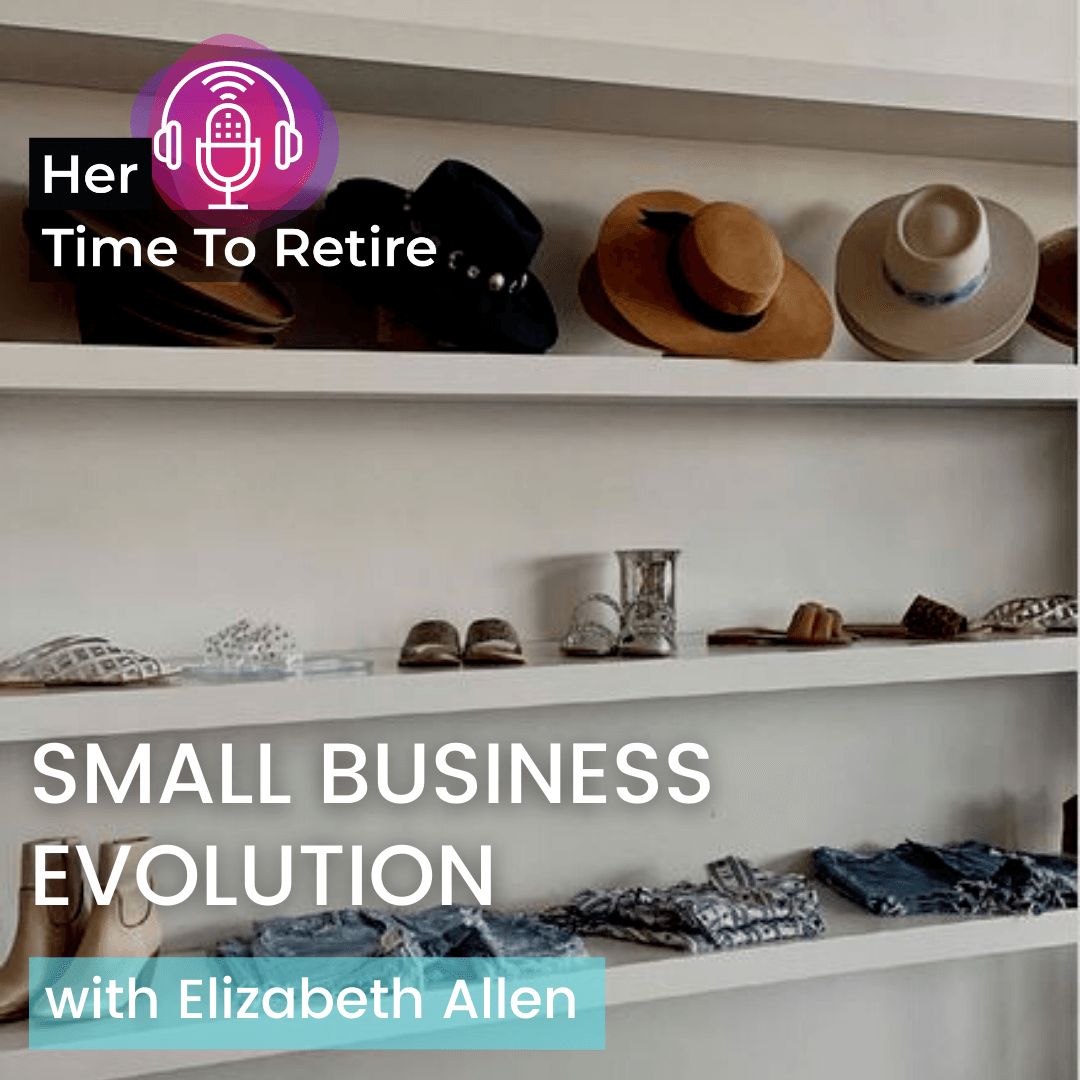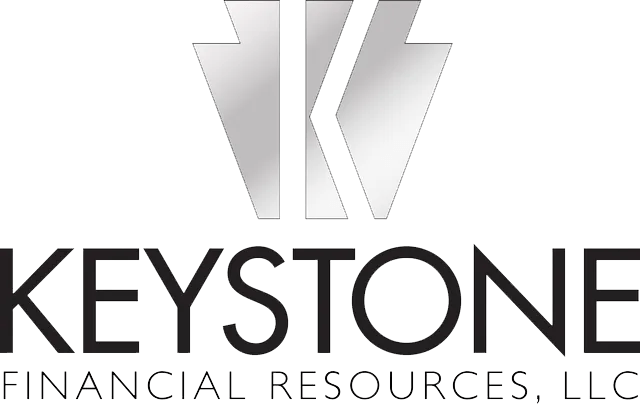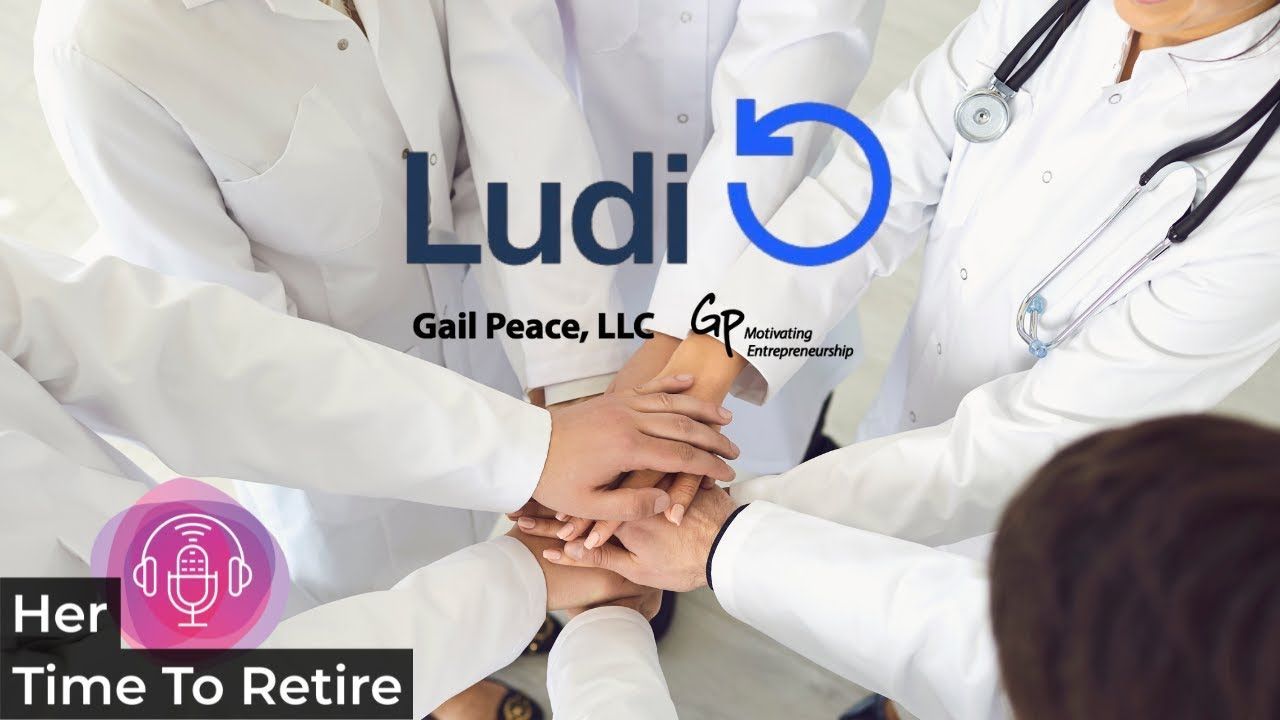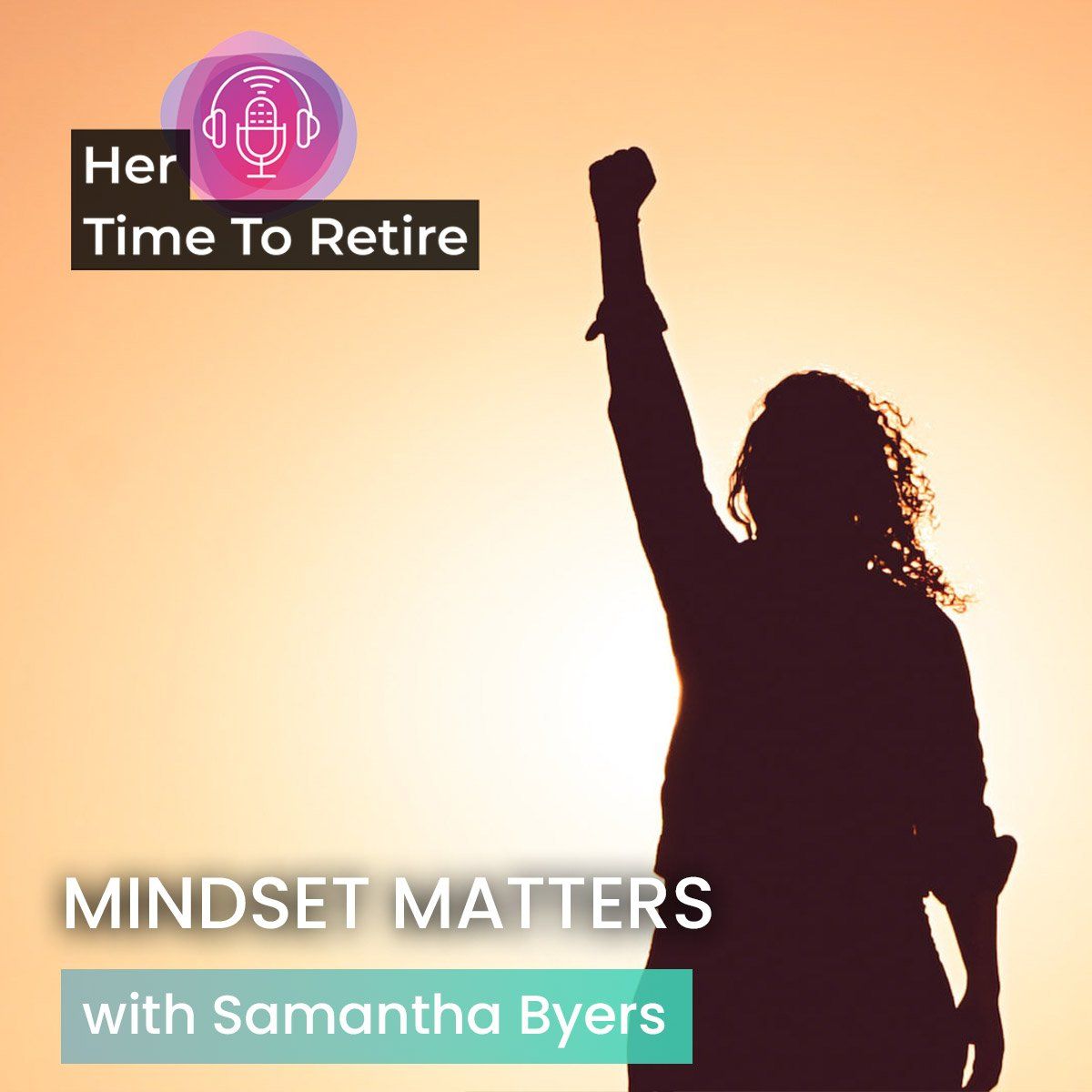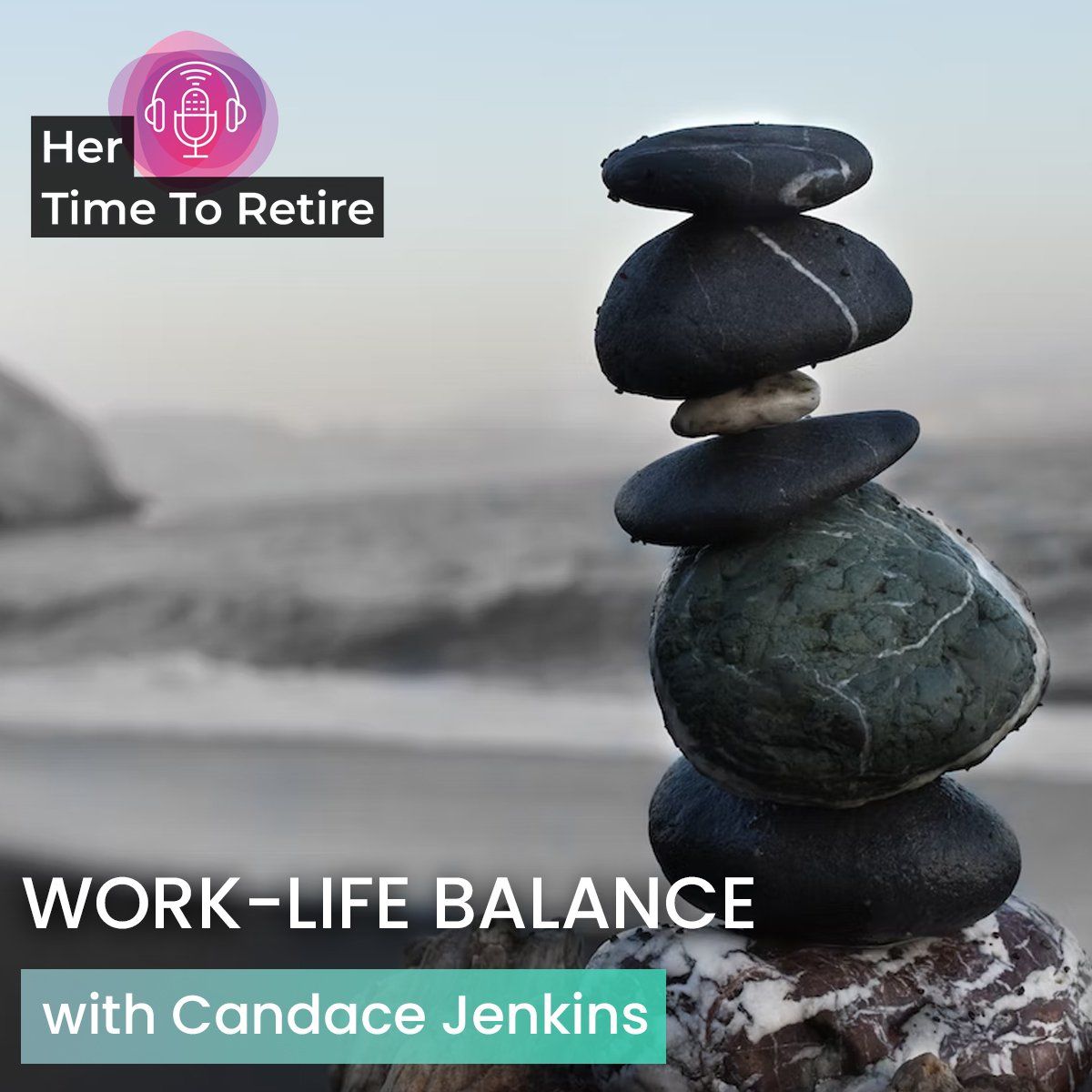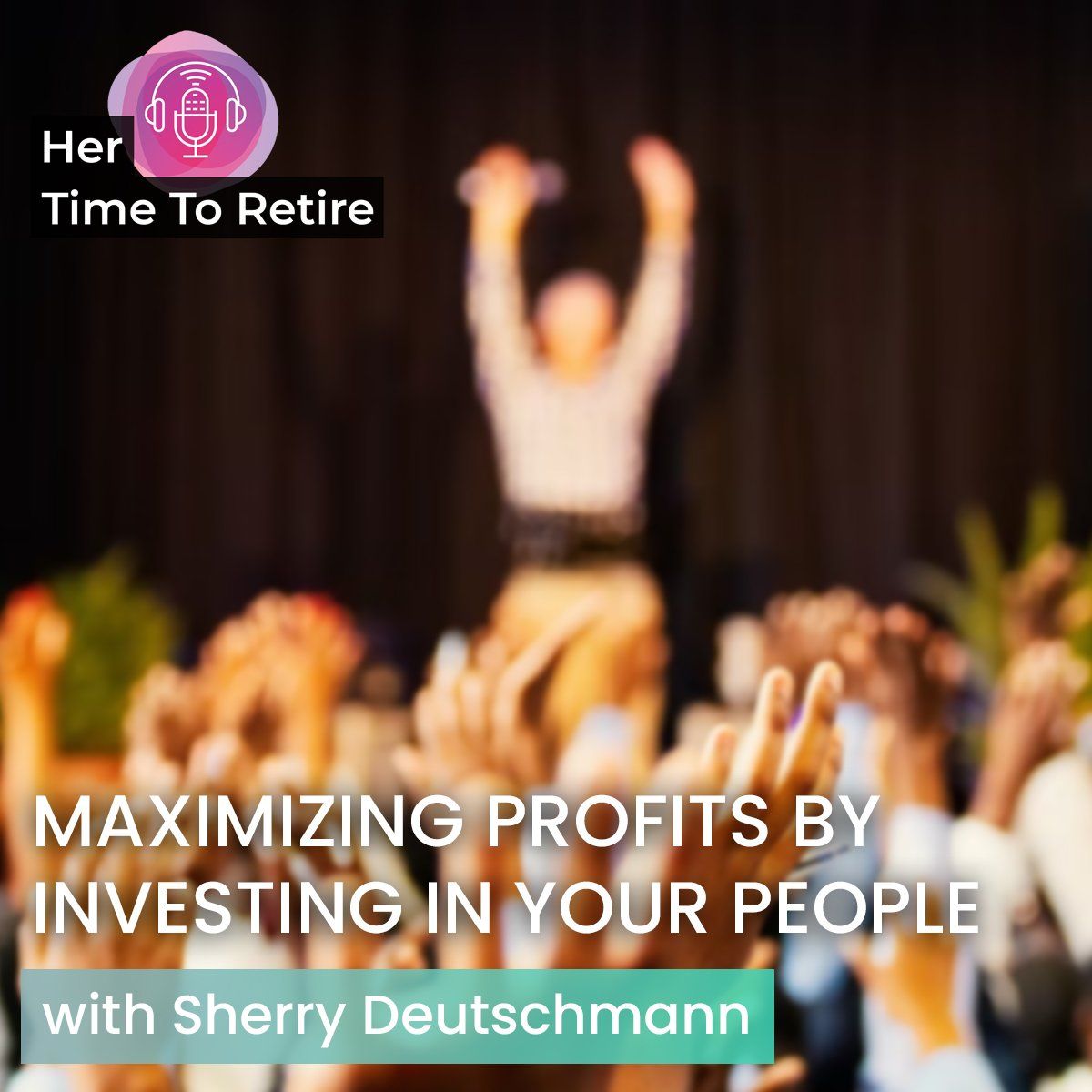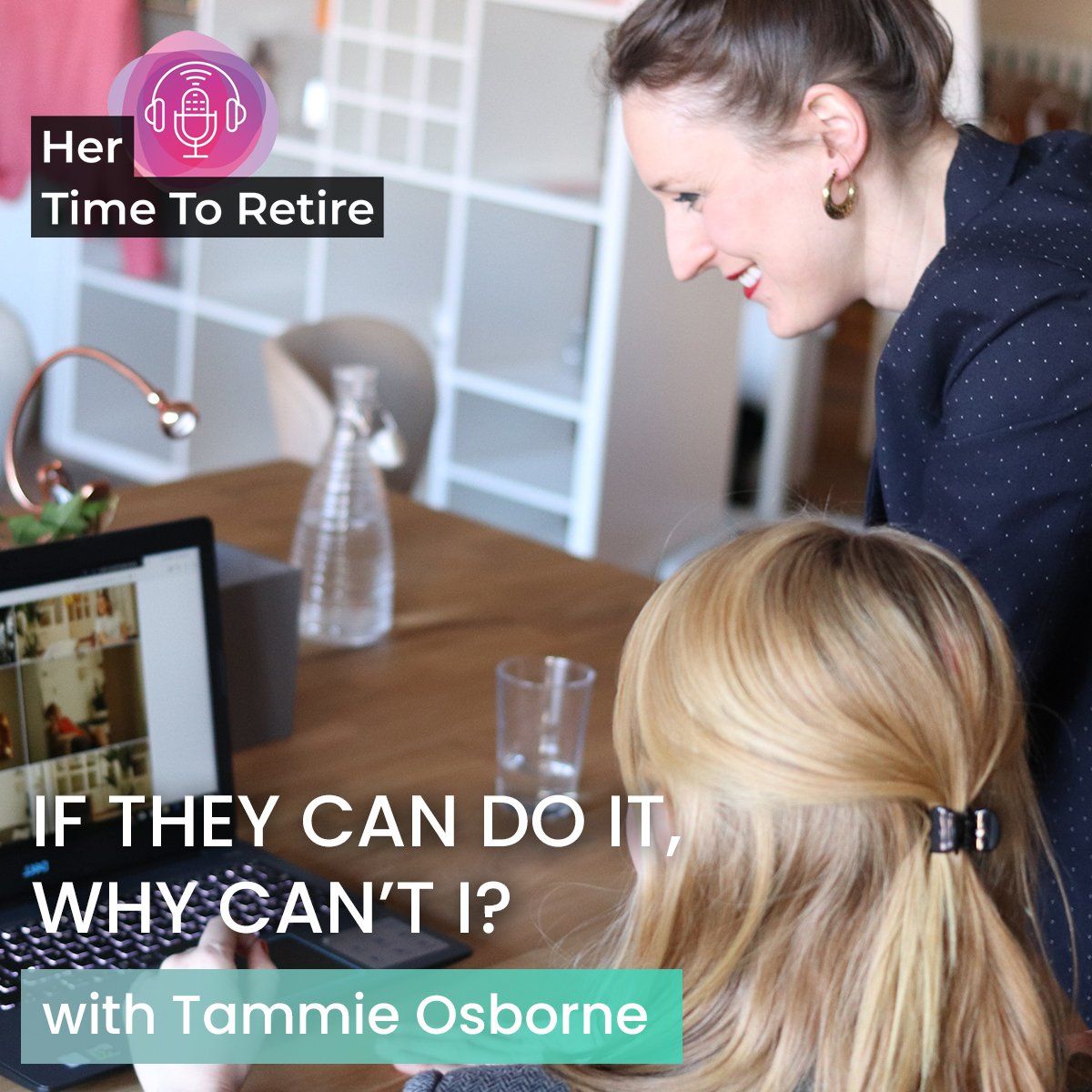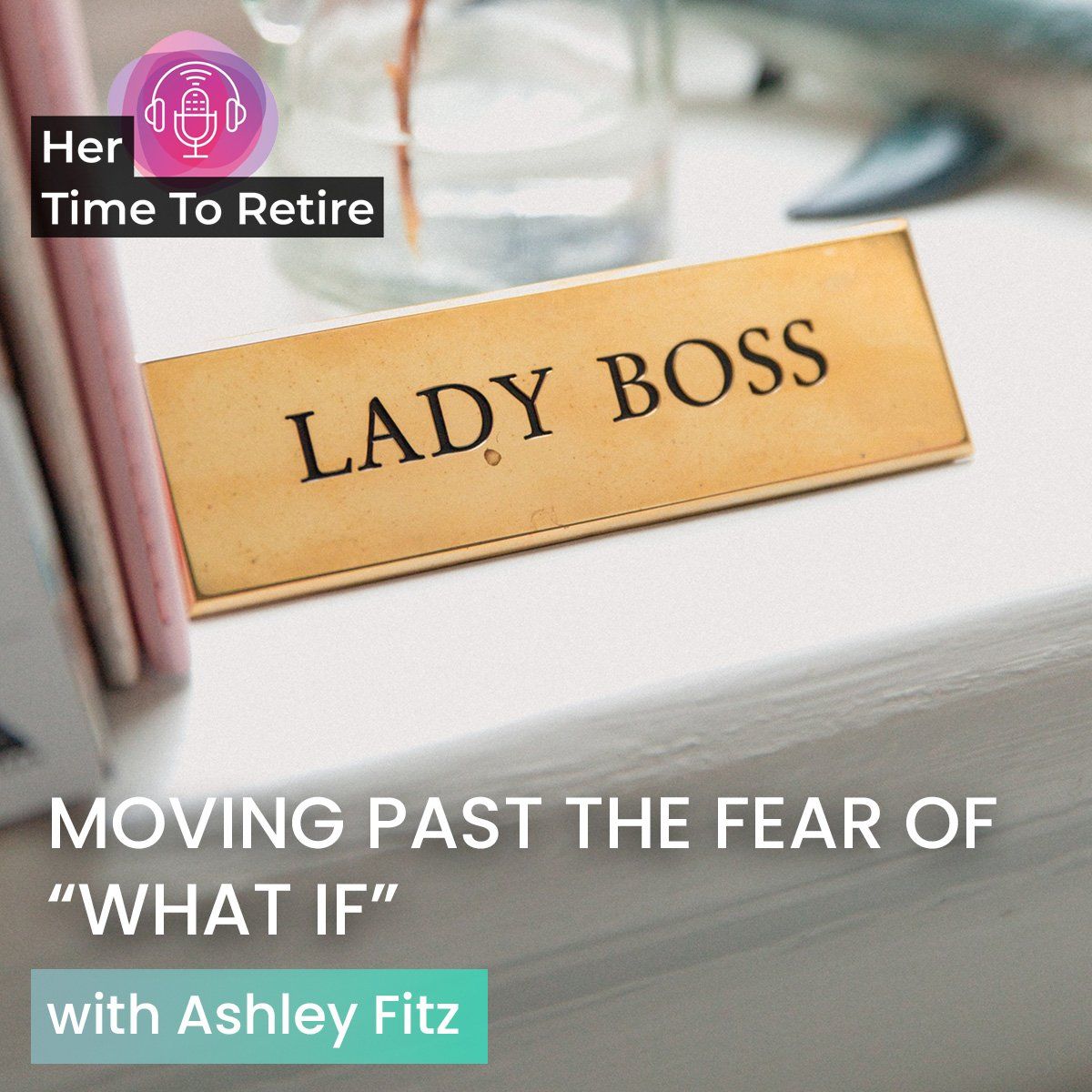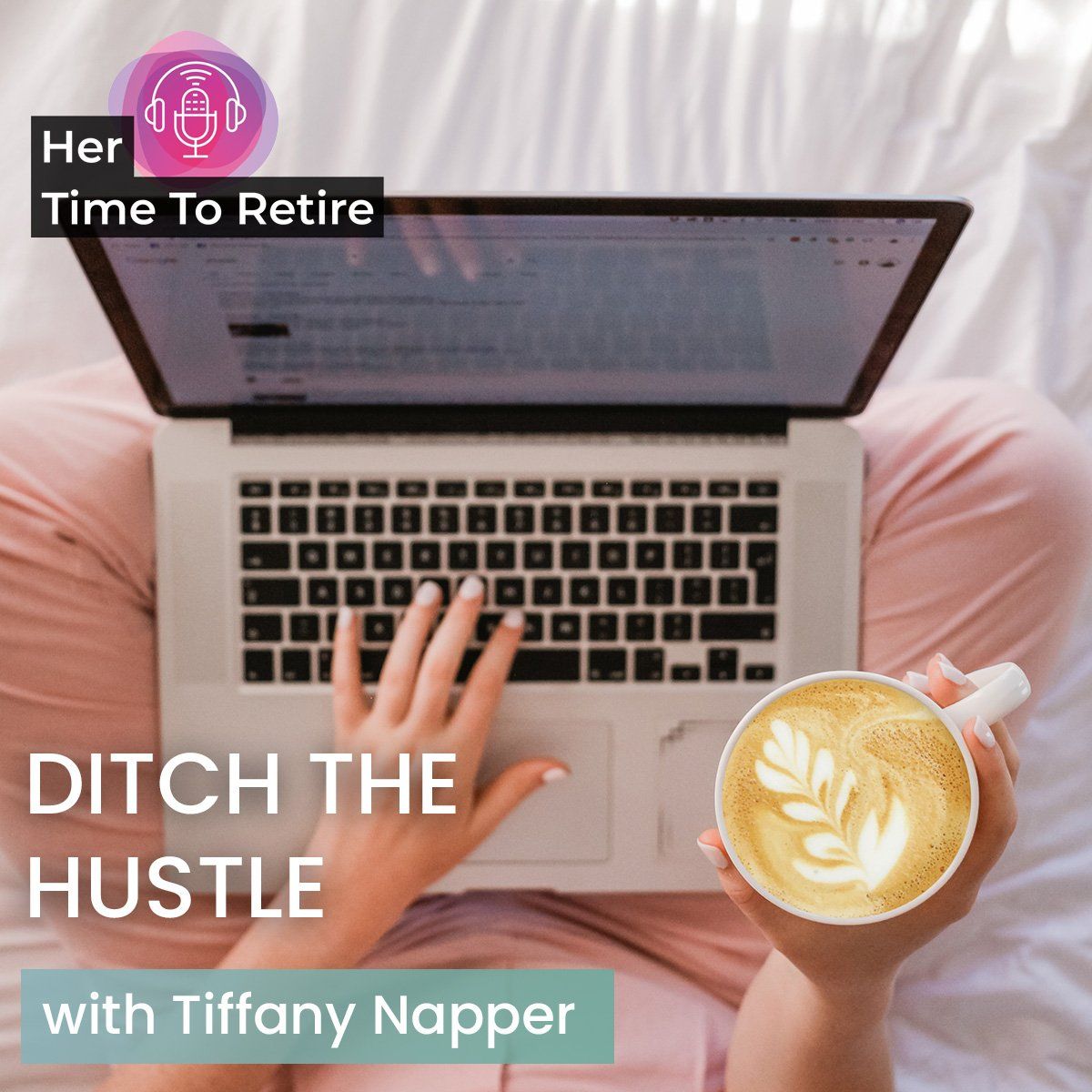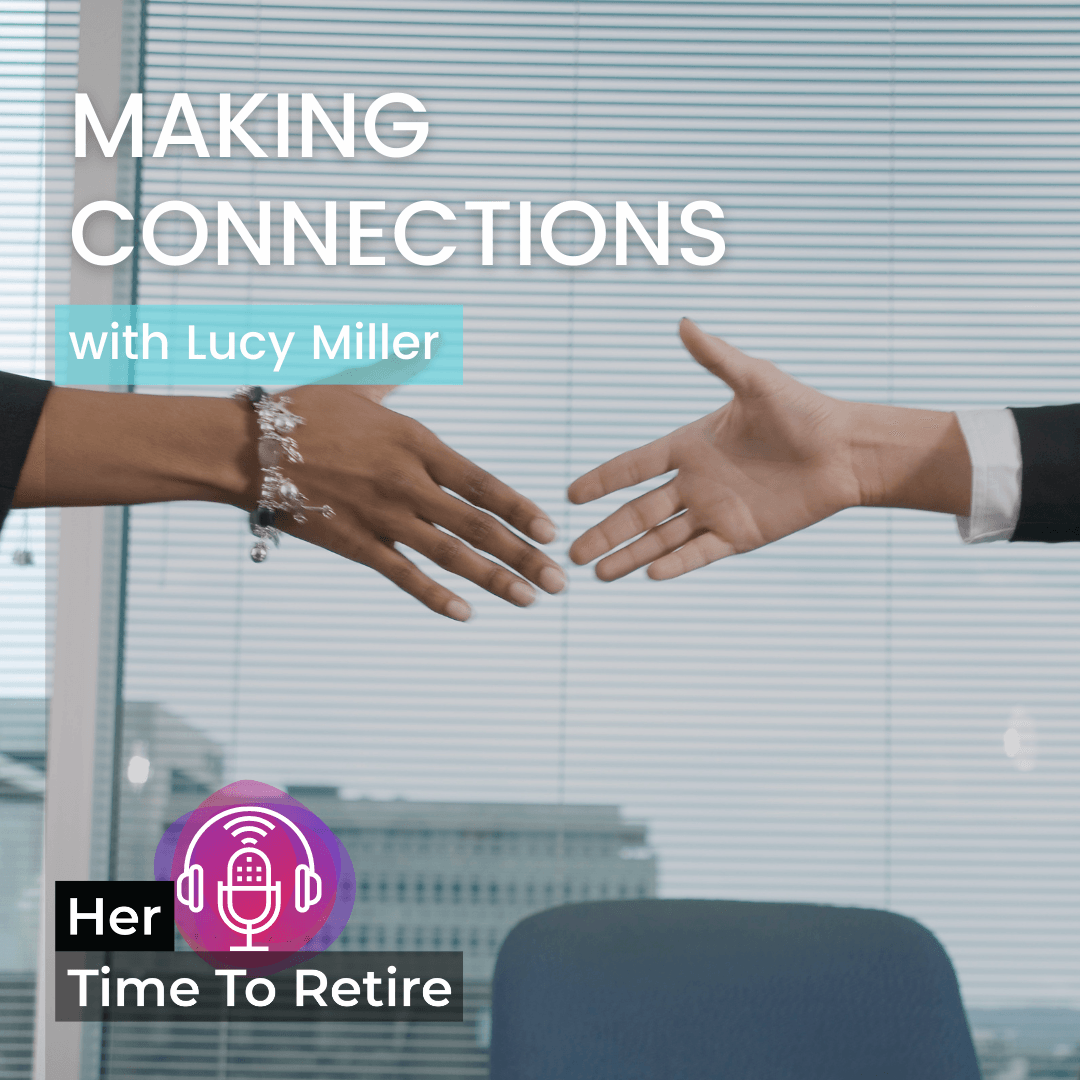Intro Speaker:
You are listening to Her Time to Retire, a podcast dedicated to helping women gain the knowledge, confidence, and support they need to achieve financial success and emotional fulfillment when planning for retirement. If you are ready to finally take charge of your financial life, then keep listening. Your hosts are Glenn Price and Jonathan Scott, founders of Keystone Financial Resources in Brentwood, Tennessee. Both men specialize in crafting individualized retirement plans for women and have a passion for helping women discover and achieve their retirement goals. Glenn is a husband and father of four who was taught early in life, through his relationship with his grandmother, how a woman can not only take charge of her own destiny, but also positively influence the lives of her family and friends that surround her. Jonathan, husband and father of three, attributes his own success to the strong women in his life, including his wife, Brooke, and his mother, Susanne. Both men, together, want to help more women live out their dreams in retirement. As always, if you have retirement questions, their phone lines are open at (615) 661-9554. Or you can visit their website to browse information, view upcoming events, or subscribe to the Her Time to Retire weekly newsletter, just visit www.keystonefinancialresources.com. Now, relax and enjoy the conversation.
Jonathan Scott:
Well, welcome to Her Time to Retire. This is a podcast for women navigating through their financial journey. I'm Jonathan Scott, the co-owner of Keystone Financial Resources, and it's my goal to speak with women at the top of their industry and create a place where they can share their best ideas and advice with you, our listeners. Now, today, I'm talking to Kristin Shea, and Kristin is a force within her industry. She's an award-winning and highly sought after consultant, speaker, and she's an influencer on a mission. Now, Kristin has dedicated her career to delivering the art of digital marketing. She's created a massive LinkedIn following and established herself there as a thought leader. Her journey has included even going on tour with the Rolling Stones, so I want to hear a little about that. And she's now preparing to publish your first book. When I first met Kristin, they termed her the LinkedIn Girl, and so we're going to talk a little bit about that, Kristin. But tell us a little bit about yourself and how you got termed the LinkedIn Girl.
Kristin Shea:
Well, my name's Kristin. I'm 27 years old. Now in Kansas, grew up in northern Virginia, right outside of DC, right outside of what they call the blast radius. So for people that are from DC, it's not like an official geographic boundary, but it's something the locals know, where they'll pay government workers extra money basically to live on the other side of that boundary. So that if something were to happen, hypothetically, a bomb went off, they wouldn't lose all their workers. So grew up right outside of that boundary. Grew up in the area. I went to college in the area, which I eventually dropped out of. Got into the industry after dropping out of school. Took up two very nice gentlemen who tipped very well at the restaurant where I was waiting tables going to school on their offer to join the industry, financial services. Didn't really know what I was getting into. Fell in love with the business. And this was in Virginia, of course, still. Had a bit of an identity crisis. I'm not an artist anymore, I'm not a psychologist, as part of the machine, part of financial services. But like I said, fell in love with it and embraced it. And very early on, realized that, in my opinion, and some other people's opinions, I don't want to speak negatively, but the industry is pretty old school. There was a lot of the financial services industry that is super outdated and behind pretty much every other industry out there. And for me, what that looked like in the role that I was brought in the industry to do, it meant pretty much building your business by making 100,000 cold calls a day. Which as a millennial and one of the younger people at the company and in the group and probably in the industry at 21, I said, "There has to be a better way." This, of course, ended up being social media. It wasn't going to be Facebook. LinkedIn just made the most sense and started off on LinkedIn, I don't know, not really with much of a strategy. I'd like to say it was good timing and a little bit of luck for it to become what it is now. And started watering the grass very, very early on. And fast forward to today, I have a pretty significant following. I've been told it's the biggest following in the financial services industry on LinkedIn. I don't know about that. That would be super if it was.
Jonathan Scott:
Wow, wow. Well, when they introduced me to you, they said that this lady has cracked the code to LinkedIn.
Kristin Shea:
That's what they say. I mean, it's a code you got to crack daily. I mean, it's certainly evolved a lot over the past seven years, all the platforms do, but I appreciate that.
Jonathan Scott:
Well, it's a big deal. I know a lot of companies out there, a lot of business owners, they're seeking to advertise through LinkedIn much the same as you would advertising through Facebook or Instagram. But LinkedIn seems to have a unique set of challenges to it. The concept is great because if you're a business and you're wanting to advertise directly to people interested in your business realm, it's going ahead and picking those people out and showing them to you on LinkedIn. So it's very direct form of social media or digital marketing. But to be able to be successful at building a platform there that people actually will follow and look at and that attract people, tell me some about how that code is created.
Kristin Shea:
Sure. I mean, what I would say right now that if you look at where LinkedIn is compared to a lot of the other platforms, it's where Facebook was probably seven to 10 years ago in terms of how far your content can go without having to basically pay for the eyeballs, pay for the attention. Is it always going to be that way? Probably not. That's how the social media platforms work. They're profit-generating companies. They're not non-profit businesses. And ultimately, where their revenue is going to come from is by people having ads that perform well. And I guess there are two types of content. I don't want to use a word that may not make sense, but there are two types of content. There's organic content and paid content. So the organic content is the content that you don't have to pay for anybody to see. And the organic reach right now, because LinkedIn is relatively immature, goes pretty far. So I don't know how much longer that's going to last. LinkedIn's had a pretty big boom over the past two years, especially since Gary V. got out there and started saying, "You have to be on LinkedIn," and it started to get flooded a little bit. But it's a great place to spend your time, and I don't know if there's anything out there that's going to replace it, at least not that I've heard of.
Jonathan Scott:
You told me about kind of a formula you created about personal, inspirational, and business.
Kristin Shea:
Yeah. So I mean, if I look at a lot of the mistakes that people make in our industry, in financial services, and I think it's a mistake that people make in other industries as well because they're trying to show up on a professional platform, it's that they show up trying to be perfect, trying to be professional, trying to be really buttoned-up and polished. And social media has two words, social and media, and people know the media part, but they forget the social part. Even though LinkedIn is a business platform, there are people on the other side of the screen, you know what I mean? It's not B2B, and it's not B2C, and this should be your approach in any digital marketing, and frankly, business in general, it's human-to-human. So one of the things that I did very early on that has served me, and I didn't realize
Kristin Shea:
what was really anything special was simply just being authentic, using my silly lingo and dumb jokes and showing my tattoos and being a human being, telling stories about times where I was sad or frustrated or I failed and not just talking about the ways that I'm great and absolutely not trying to constantly sell. There are three types of content that I try to rotate between them. There are 1,000 different content formulas that people prescribe to and they're all ultimately similar. Mine, the one I happen to prescribe to is rotating between three types of content. It's personal. The second one is kind of a catch all, it's the inspirational, entertaining, it's the funny. The third is professional. The things that are going to bring people in to follow you, to engage with you, are the human posts. It's a picture of you taking your kids to soccer practice, or it's a picture of you, I mean, I guess if you were to think work-wise, picture of you with your dog at the office. The inspiration or the entertaining, the interesting, entertaining, inspirational are the equivalent of the videos of the dog singing and the baby saying crazy things and the baby reveals, well, that's probably more personal, but a baby reveal, a gender reveal. But it's entertaining. It's the stuff that brings people in. And if you do a really great job at those two things, then they're going to be a little bit more open-minded to hearing your business stuff. They're going to stick around enough to see that and because you have connected with them on a personal level, they can relate to you. You've made them laugh, you've shared a frustration, then they're going to be open-minded to hearing you when you say something that may be able to make a difference for them, or even think to themselves, "This person may know something that I don't know."
Jonathan Scott:
I look at a lot of LinkedIn stuff out there and everybody knows that that's not the way the majority of it is, and so that is making you unique on the platform, for sure.
Kristin Shea:
Well, if you think about it, people don't go on social media to work. People go on social media while they're waiting for their coffee to kick in. They go on social media, and this is LinkedIn included even though it's a business platform, they do look at it when they are sitting at a red light, unfortunately. They look at it while they are sitting on the couch after a long day at work and they're waiting for dinner to be ready. They're not going on social media to work. They're going there to see what their friends and their family, and on LinkedIn, their colleagues and their peers are up to. I think a lot of times people look at social media and they look at it as a place to get business, to book appointments, to gather leads and that's certainly the case, but social media is a top-of-funnel activity. People don't wake up in the morning and say, "Geez, I really hope I find a financial advisor today on Facebook," or, "I really hope I find my next interior designer on LinkedIn today." It's not something that they do and making the ask for somebody to book an appointment while they're on social media knowing where their headspace is at is insane. But what is a reasonable ask or a reasonable goal is creating the top-of-mind awareness to be the first person that they call when they realize that they have a need. On average, after somebody sees a product or a company on social media for the first time, or online in general, they're usually pulling the trigger within 18, 24 months. So your goal is to not just be the person that introduces the idea or the problem that you can solve and starts building that personal relationship on the front-end, but is also the person that is continuing to build and nurture that relationship without inflicting on their autonomy and be the person that is trusted to get the phone call.
Jonathan Scott:
Sure. And you told me that you've learned a lot about the algorithm that LinkedIn uses, so tell me a little bit about that.
Kristin Shea:
So, for anybody who wants to use social media to drive business or if they're posting on behalf of their businesses, or even themselves, this really applies to all the different platforms. There are a set of rules behind-the-scenes for every single social media platform that basically determines which content is going to be seen and which content the platform is going to bury and make sure that nobody sees. The algorithm sounds fancy, but it's just a set of rules and they're looking at qualities such as, well, is there a link? How many hashtags are there? How long is the video? And based on their goal of being able to generate revenue off of the ads and get people to stay on the platform for as long as possible so that they can see more advertisements, they have this predetermined set of rules that they're looking forward to say, "This is what I think people really want to get out of LinkedIn and we're going to make sure that people see the things that are going to keep them on here longer and make this a place where they live." So, because LinkedIn's algorithm is a little bit different than, we'll say Facebook as an example because I think they're comparable structurally, but they have a couple of things in common, but there are some differences. A big one that I think is consistent between the two is being careful about posting links. So in regards to the platforms being revenue generating companies, the longer that you spend on the platform, the better ads are going to do. And if you're posting links, you're basically telling the social media platform, "I want to send my audience away from here," and they're going to look at that and learn and say, "Well, no, you don't," and then they're going to basically bury the link. They're going to favor native content. They're going to favor the native meme that gets uploaded directly and it's not hosted somewhere else because they want more people to come onto the platform if they know that that's where somebody's content lives. In my industry, specifically, what I see is a lot of advisors who are really, really busy. They're wearing 18 different hats. They get approached by these companies saying, "Hey, don't worry. You know that you have to be online. We do too and we also know how hard it is for you to create the content and build a presence while you're doing 18 different things. And we also know that you have to worry about compliance, so we have this library of stuff. We have this library of mostly links that we're going to post to your LinkedIn account, or your Facebook account, or whatever on your behalf." And the advisor's like, "Sick, that's awesome. Sign me up. Check," but you know what that ends up creating is 3000 people all posting the exact same thing at the exact same time. The algorithms aren't dumb, they know that something is posting on your behalf. It is not custom. They can see that 3000 other people also posted it and basically what you're telling the platform is that you have nothing original to say. You have nothing interesting to say. There's nothing authentic about the way that you are, or unique about the way that you're showing up and it's probably not content that anybody wants to see, so they're going bury it. Those are probably the big ones. Right now, there's a trend because there's a new social media platform called Clubhouse, which is all audio. It's like Twitter, but audio-based. And when I said, "It's constantly changing," this is a good example of that. If would have talked to me six months ago I would've said, or even three months ago, "You have to be posting videos. The algorithm loves videos. It's where the internet's going." I think 95% of all internet traffic content is going to be video projecting by, I'd say, 2022. But with Clubhouse coming up and being something that people are really gravitating towards, the platforms are looking at that and saying, "Hey, I think Clubhouse is monopolizing this audio content,"
Kristin Shea:
People are going to be a lot less likely to watch videos right now. And videos are not performing as well; the text and the image posts are doing a little bit better. These are things that you can only learn through practice and trying and failing, but I think it would be silly to not, if both the medias of focus spend some time just simply Googling, "LinkedIn Algorithm 2021." And it'll tell you exactly what they're looking for.
Jonathan Scott:
God, that is tremendous information, Kristin. So, you guys can get the idea. Kristin is extremely bright. She's great at what she does. But you've gone through some obstacles getting there. I mean, tell us if you know... I was just reading your biography again. So no wonder Kristin's writing a book. I think it could be a movie. But you graduated high school at 16 years old. I mean, this is one of the points that you told me about. I want you to elaborate on it a little bit, but past that, these different obstacles you've overcome, you even had to overcome a terrible car accident and relearn how to speak and how to move. Is that correct? Actually at the-
Kristin Shea:
Read and walk.
Jonathan Scott:
Read and walk, okay.
Kristin Shea:
I wasn't a complete vegetable, but I was a little cooked.
Jonathan Scott:
Well, that's fantastic. So, tell me about you graduating high school at 16 years old. That had to have been crazy.
Kristin Shea:
Yeah. It's a really cool thing and it's a great bragging point. It's like, "Ah, I graduated." And I was able to do it with an advanced diploma and being in advanced classes since I was super young, but it honestly wasn't really from a super positive thing. When I came into the high school I was at, it was a big high school in Northern Virginia, a really special place, very fraternary, a lot of people, and a lot of people with money, and a lot of people from all over the place and all. Amazing. I had gone to both of the middle schools going into the high school. So coming in freshman year, I knew everybody. And for me, the world has never been big enough. So I walked into my math class the first day of school and I was, I think the only freshmen in the class, maybe one other freshman. It was mostly older people, and led to me sitting at the table with seniors. And ultimately, put me in a situation where I... And I probably perpetuated it. I probably made it worse for myself, because I overcompensated and I really just wanted to be liked and to be loved as a really deep empath, but I ended up having a lot of really bad problems with bullying. I have always moved quick. I've always done things fast. I've always gotten ahead, but I can't say that I graduated early strictly because I wanted to get ahead. It was because I wanted to get out of my high school. It was a really, really emotionally unsafe place for me, which I tried to start a nonprofit for. And I just hadn't necessarily channeled my energy yet, which is funny. But yeah, I graduated at 16. I was like, "All right, let's go to college. Let's get out of here. Let's start a new chapter." Parents said, "Whoa, let's pump your brakes a little bit. Why don't we go to community college?" Was a good idea, because I didn't really know. I mean, you're 16 years old. I mean, and shoot, even honestly, 18, to be able to leave and be expected to make a decision about what you're going to be doing for the rest of your life is honestly kind of crazy to me, but it's a personal experience thing. So, lot of energy. Got five speeding tickets in a very short period of time; license got revoked, not suspended, but revoked. So you can't do well at community college when you can't commute. You're taking a cab once a week, if you feel like it. Wasn't really challenged or inspired by community college and was just, I don't want to say lost, I wasn't like a sad puppy dog, but I just wasn't digging it. And I got into a pretty bad car accident right before finals, which I probably wasn't prepared for anyways. And it was just one concussion too many. I had a bunch of concussions playing sports growing up. One concussion too many, had a little bit of brain trauma. Had a little bit of trouble walking and reading, and with my memory for a while. And it was God putting me on my butt and saying, "All right, let's hit the reset button." So, that's exactly what it was, gave me a chance to reset. My license was reinstated. And I started going to George Mason. Got my associates, transferred to George Mason. But at that point, I was 21 and everything that I had felt like I had done to get ahead, and all this motivation that had been honestly lost, it felt like it was for nothing. I would've still had three years to go in school. So I was working at a wine bar waiting tables. I guess I'm a natural salesperson, got it from my dad. Won a wine sales competition to go to Napa before I was 21 years old, and met the two people that asked me to take a survey, ended up being sales aptitude test, and ended up in the business. It wasn't easy. I don't want to tell the story like I'm a victim in any way, because I have an insane amount of gratitude for every thing that I experienced and a lot of empathy for the bullying in school. I can't imagine how hard it is right now, with how social media is. And as somebody who also has anxiety that runs in the family, mental illness is a really big deal and all of that, and all of the reflection that comes with having such an overactive mind with anxiety. And all the experiences that fed that hyper-reflection has made a really big difference in who I am today and my ability to roll with the punches, and I think it's all really, really served me.
Jonathan Scott:
Well, I got to describe you after hearing this story. And I said, "Kristin is an old soul." I mean, for certain. At a young age, you had experienced half of life. And in reflecting on that, that gives you a lot of challenges. And you and I shared together and some of that in our conversations together. And it really, it can weigh on you in a negative way, in some circumstances that, "Gosh, I've experienced so much in the young life, what does the next 20, 30 years have to offer?" And so, you're out touring with the Rolling Stones at 20 years old, Kristin. You've experienced a lot of life in a short amount of time. So, that's tremendous. Now, you're writing a book and tell me what the book is about.
Kristin Shea:
It is a hill that I am preparing to die on. I have a reputation. I don't know if it's just because I'm young or I'm a female in the industry or what, or all the tattoos, but I stick out like a sore thumb a little bit. So, it's probably fed my ability to build a following and a reputation, but I have a reputation basically for being very honest, very candid, and being a huge fan of authenticity. And I'm frankly, very frustrated. I'm super frustrated about how advisors are being promised results online, paying a ton of money to get those results, not seeing them, not having any alternatives, not knowing even the criteria that they should be looking at if they're going to be evaluating the digital marketing companies that they're going to be using. And part of this new chapter that I'm in means getting our industry out of the 1990s and bringing in experts, massive, big-name people that I can't really disclose just yet into the industry. And for the advisors that we work with, giving them access and
Kristin Shea:
building some really cool custom stuff. And the book addresses that. I don't know how many friends I'm going to make outside of the advisors. I think the advisors are going to be freaking stoked about it, and I think it's going to blow their minds. Because it's honest if I'd like to think it's funny, but I think I'll probably think it's funnier than anybody else does, but it's kind of calling everybody out. It's kind of saying, "This is BS. I don't like this. This is bad. You're crazy if you're doing this, they're scamming you. I think you deserve better. I think you're better. I think you deserve better."
Jonathan Scott:
I can't wait to read it. So if those of you that are listening that are catching on, I met Kristin through the industry that she's working in right now. So Kristin has been contracted and is working right now, helping in the financial services industry, actually working with advisors in creating the digital marketing and things like that. So, they've gathered her up directly for her talents and she is putting those to work on the behalf of the advisory practices across the nation. And so this is an area that she's focusing in right now. But Kristin, I can't wait to read the book. Have you put a title to it yet?
Kristin Shea:
Yeah. It's called "The Truth About Digital Marketing for Financial Advisors."
Jonathan Scott:
Perfect. Well, I could write a caption to it myself right now. There's been a ton of dollars wasted in the wrong directions from time to time. And so I know that lots of people, not only in the financial services industry, but I know for the ladies that are tuning in and listening, whatever industry they are working in, there's commonalities between those industries and everyone is seeking to crack that digital code per se, and make that a really, really effective part of their marketing going forward in the future because it is the future.
Kristin Shea:
Well, I think the question you asked was, tell me about the algorithm. And I think when it all comes down to my friend, Joshua Beanie, who I collaborate with, for my LinkedIn, I'm working with him currently, he does some big marketing for a lot of big names. I don't want to take credit for this, but I'm going to share his thoughts. It's not the algorithm. It's not, how does the algorithm work? It's what is the human algorithm? What connects people? And you know what connects people is gratitude, it's appreciation, it's vulnerability. It's connecting on an emotional level. So, I think what a lot of people miss along those lines about digital marketing, you always think about what you post, it's about what you say, but it's just as much about commenting on other people's stuff and liking their stuff and thanking them. But then it is just about posting your stuff. So if we have a couple of minutes, I want to make sure that we make that note to the same extent that we say, "This is the stuff you need to be posting." It's also to say that it's really just not all about you.
Jonathan Scott:
Absolutely. So, if we gave our lady business owners out there that are listening one piece of advice, as they're trying to create a platform on LinkedIn, or they're trying to use Instagram, or they're trying to crack these digital marketing codes, what would the one piece of advice be that you would lead them with?
Kristin Shea:
One?
Jonathan Scott:
If you had to narrow it down to one?
Kristin Shea:
One?
Jonathan Scott:
The best piece you could give them, Kristin?
Kristin Shea:
Is to take the pressure off yourself to be on all of the platforms. It's to find one that you really love and fits your natural skillset. Not what everybody else says you should do. Whether you like to write or you like speak or you're okay on camera, figure out what that is and go to the platform where you can do the thing that taps your skillsets more so than anybody else's and then live there. If you check one of my favorite quotes is if you chase two rabbits at the same time, you're not going to catch any rabbits. And you can try and chase the five rabbits or whatever that are LinkedIn and Instagram and TikTok and Facebook, you're definitely not going to build a meaningful presence anywhere. It would be to find the one or the two, go all in on it. Be super, super consistent and be super, super patient. It takes it. It really takes time, it's not a quick fix. And paid advertising is not the quick fix. It's not something that you should even consider doing until you have like your organic content and stuff done and creating a following organically takes time. So I would give it six to 12 months before you write it off, of consistently, several times a week posting before you say, "I don't know about this."
Jonathan Scott:
I love that, Kristin. So I hope you ladies wrote that down. And Kristin, thanks for grabbing some time with me today. Again, this was Kristin Shea, and I really appreciate you sharing with us. I can't wait to hear more in your world. I can't wait to read the book and thank you for helping advisors in the industry, but I think everybody can take away from what you've done. And again, this is Kristin Shea, the LinkedIn girl. And as always, if any of you have questions out there about anything we discussed today, we'd love to talk with you more. I'm Jonathan Scott with Keystone Financial Resources. You can reach me at (615) 661-9554 or Keystonefinancialresources.com have a great day, and thank you.
Intro Speaker:
You have been listening to Her Time to Retire with Glenn Price and Jonathan Scott. Glenn and Jonathan would love to talk to you and answer any of your retirement questions. All listeners can take advantage of a free 15 minute consultation with Glenn and Jonathan, whether via phone call, Zoom meeting, or in person, you can schedule your consultation by calling (615) 661-9554 or by visiting our website at www.keystonefinancialresources.com. Thanks for listening. The opinions expressed by Keystone Financial Resources and guests on this podcast are their own and do not reflect the opinions of this station. All statements and opinions expressed are based upon information considered reliable, although it should not be relied upon as such. Any statements or opinions are subject to change without notice. Investments involve risk and unless otherwise stated are not guaranteed. Past performance cannot be used as an indicator to determine future results. Strategies mentioned may not be suitable for everyone. Information expressed does not take into account your specific situation or objectives. It is not intended as recommendations appropriate for you. Before acting on any information mentioned, please consult with a qualified tax or investment advisor to determine if it is suitable for your specific situation. This program is designed to provide accurate and authoritative information with regard to subject covered. Investment advisory services offered through Brookstone Capital Management, LLC, or BCM, a registered investment advisor, BCM and Keystone Financial Resources are independent of each other. Insurance products and services are not offered through BCM, but are offered and sold through individually licensed and appointed agents.
